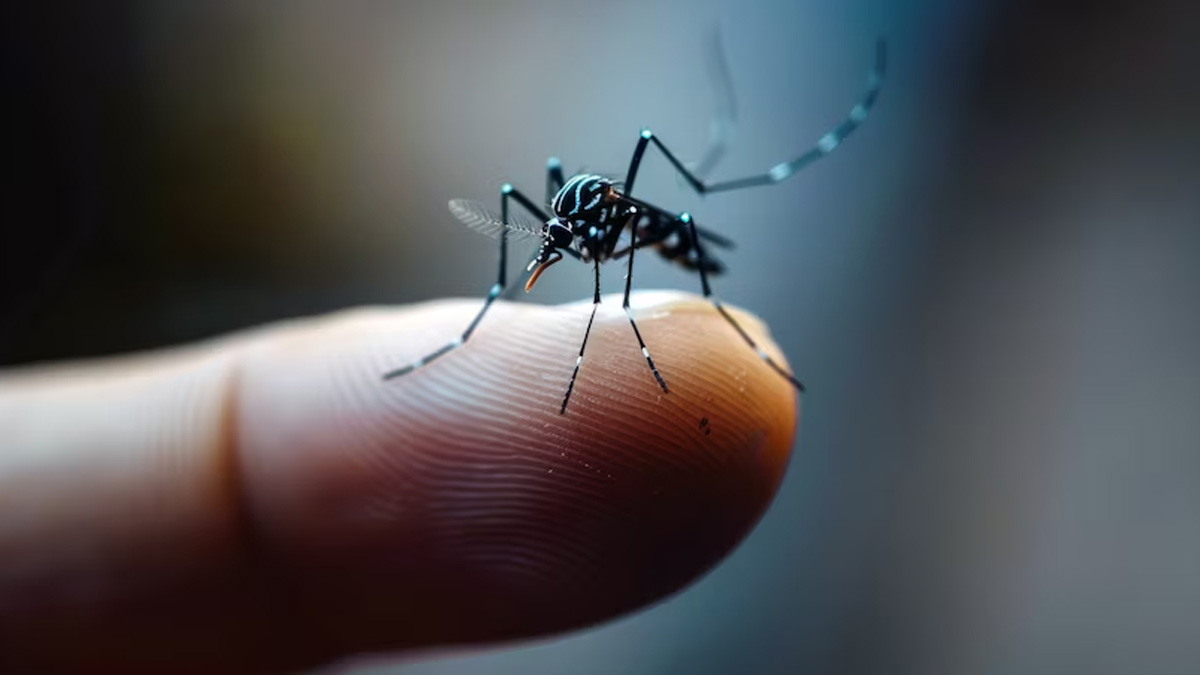
Dengue outbreak driven by monsoon rains and urbanisation; Experts stress importance of hydration and preventive measures
NT, Bengaluru: Karnataka has witnessed a significant surge in dengue cases this year. As of now, the state has reported 26,825 cases, with BBMP alone accounting for over 12,366 cases, making it the highest in the state. Following Bengaluru in dengue numbers are Ramnagara, Kolar and Chikkaballapura. Among the affected, more than 16,600 cases have been reported in individuals aged 18 and above. Unfortunately, dengue has claimed 12 lives in Karnataka this year.
Dr Sunil Havannavar, Senior Consultant in Internal Medicine at Manipal Hospital Sarjapura, highlighted the alarming rise in dengue cases in recent months. He pointed out that this spike is typical during the monsoon season, usually spanning the period from June to November. This year, however, the increase has been particularly pronounced. Dr Havannavar attributes this surge to the accumulation of water due to rain, urbanisation, ongoing construction, and poor infrastructure, all of which create breeding grounds for the Aedes aegypti mosquito, the primary vector for dengue fever. Dr Havannavar emphasised that dengue is a viral fever and is usually self-limiting, requiring primarily supportive treatment. He urged the public not to panic, particularly about platelet counts. He noted, “90 per cent of dengue patients do not need platelet transfusions. The drop in platelet count is a natural occurrence during dengue fever, typically observed in the latter half of the illness, and usually gets resolved within a few days.
Only in cases where platelet counts fall below 10,000, or there are bleeding manifestations, is transfusion necessary.” The most crucial aspect of dengue management, according to Dr Havannavar, is maintaining proper hydration. “Hospitalisation is generally not required unless the patient cannot stay hydrated orally due to severe nausea or vomiting. Monitoring hematocrit levels is also essential to assess dehydration, as it is a more reliable indicator than platelet counts,” he said. Preventive measures play a vital role in controlling the spread of dengue. Dr. Havannavar stressed the importance of eliminating stagnant water sources around homes and construction sites, wearing long sleeves, and using mosquito repellents, especially during the day when Aedes mosquitoes are most active. Dr Sheela Chakravarthy, Director of Internal Medicine at Fortis Hospital, Bannerghatta Road, Bengaluru, echoed these sentiments. She explained, “Dengue outbreaks typically follow the monsoon season due to the abundance of stagnant water around homes, in containers, and near bodies of water like lakes and swimming pools. These conditions create ideal breeding grounds for mosquitoes.”
Dr Chakravarthy advised people to take precautions such as covering themselves fully while outdoors, particularly in parks and other areas with high mosquito activity. She emphasised that preventing mosquito bites during the day is crucial, as Aedes mosquitoes are daytime feeders. Public awareness is critical in controlling dengue. Dr Chakravarthy urged people to eliminate any potential mosquito breeding sites around their homes, keep water containers closed, and support government efforts in maintaining clean surroundings. She also highlighted the role of certain fish species, like Gambusia, in controlling mosquito larvae in larger water bodies. Currently, hospitals in Bengaluru are witnessing 5-6 dengue cases per day, with 2-3 requiring hospitalisation. There are 18 admitted patients.
 English daily published in Bengaluru & Doha
English daily published in Bengaluru & Doha






